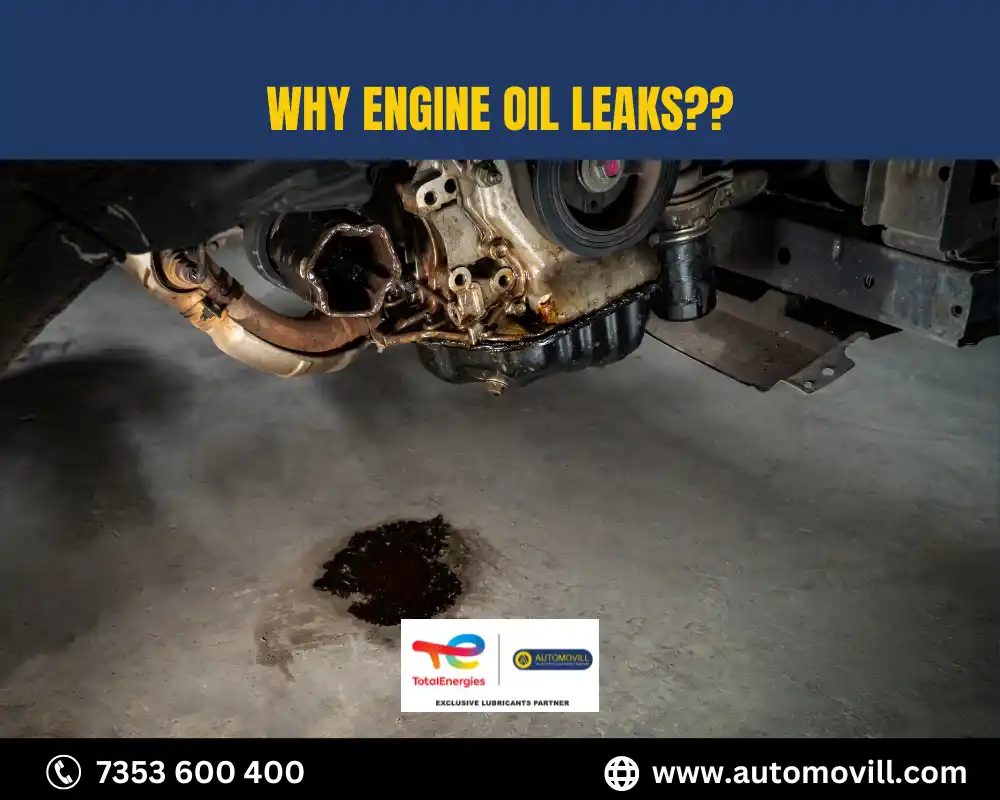
A Puddle of Worry
Imagine a bright sunny morning, birds chirping, and you’re all set to leave for the office or an important meeting.
You’re looking forward to a productive day ahead, and nothing seems out of the ordinary.
But as you walk towards your car, ready to conquer the day, you notice something that immediately puts a pause on your plans.
But wait – what’s that? A small puddle forming beneath your car?
Oh no, it couldn’t be… could it?
Yes, it’s engine oil.
This is the story of how a seemingly routine morning turned into a lesson in car troubleshooting, one you never saw coming.
But seeing that oil puddle, it’s like your car is trying to tell you something.
The Basics of Engine Oil
Before we dive into solving this puzzle, let’s quickly go over the basics. Engine oil is more than just lubrication – it’s a guardian for your engine. It makes sure all the parts inside are working together harmoniously, without any friction-induced drama.
So, when you spot oil on the ground, it’s a sign that something might not be quite right.
But when it starts dripping onto the ground, it’s like your car is crying for help.
Now let’s understand the signs and causes of oil leakage.
Causes: Why Engine Oil Leaks?
1. Gasket Gremlins
Faulty gaskets, like the oil pan gasket or the valve cover gasket, are common suspects. They can develop leaks over time and let the precious oil escape, creating those telltale puddles.
2. Dripping Drain Plugs
Sometimes, it’s the oil drain plug that’s loose. It’s like the car’s way of letting you know it needs a little tightening.
3. Cracked Casing
A cracked engine block or oil filter housing can also be behind the leak. Just think of it as a tiny crack causing all that trouble.
4. Loose Oil Cap
That little cap sitting on your engine might seem insignificant, but it plays a crucial role in keeping your oil secure. If it’s even a little bit loose, oil can make its way to escape.
Signs of Engine Oil Leakage
Engine oil leakage might not be immediately apparent, but there are some telltale signs that you should watch out for:
- Oil Puddles: Spots of oil on your driveway or parking spot.
- Burning Smell: A noticeable odor of burnt oil when the engine is running.
- Engine Overheating: Insufficient oil levels can lead to overheating.
- Dashboard Warnings: Oil pressure or low oil level warning lights illuminated.
- Excessive Exhaust Smoke: Blue or gray smoke indicating burning oil.
Resolution
Don’t let the leak happen longer – take action to resolve it:
- Inspect Regularly: Make it a habit to check under your car for oil puddles. Early detection can save you from major engine troubles.
- Go To a Mechanic: If you suspect a leak, it’s best to consult a professional. They’ll have the experience and tools to diagnose the issue accurately.
- Replace Seals and Gaskets: If these are the culprits, replacing them can put an end to the leaks.
- Tighten or Replace the Oil Cap: A loose or missing cap is an easy fix – just ensure it’s in place and snug.
A Happy Ending for You and Your Car
By paying attention to the signs and taking prompt action, you can keep your car’s engine running smoothly and enjoy those carefree drives without worrying about oily surprises.
Remember, every drop of oil saved is a step towards keeping your car – and your wallet – happy and healthy.
